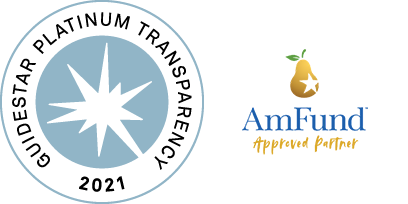ADVOCACY
TO CONTACT YOUR REPRESENTATIVE IN WASHINGTON
- Go to www.house.gov
- Click on find your representative
- Enter your zip code and click on Look Up
- Your Representative’s information will come up.
or
- www.senate.gov
- Click on Senators
- Click on choose state
- Select Florida
- Both State Senator’s contact information will come up.
AIR CARRIER ACCESS ACT
The Issue:
The Air Carrier Access Act (ACAA) prohibits discrimination based on disability in air travel. Despite progress, too many passengers with disabilities regularly encounter significant barriers. Enforcement of ACAA protections is limited to administrative action and civil fines. In October 2018, the President signed legislation to reauthorize the Federal Aviation Administration (Public Law 115-254). This legislation included several provisions from the Air Carrier Access Amendments Act (ACAAA), including increased civil fines for passenger injuries and wheelchair damage, development of an Airline Passengers with Disabilities Bill of Rights, and establishment of a Department of Transportation (DOT) Advisory Committee on the Air Travel Needs of Passengers with Disabilities. In the 116thCongress, PVA is supporting congressional oversight of these provisions to ensure that DOT carries out the law’s requirements. PVA is also working to ensure the reintroduction of legislation addressing the remaining pieces of the ACAAA not already enacted into law. Key provisions that still need to be passed by Congress include strengthening ACAA enforcement through referral of certain complaints to the U.S. Attorney General and a private right of action and requiring airlines to ensure that airplanes meet broad accessibility standards such as those found on other modes of transportation used by the public.
CAREGIVER EXPANSION
The Issue:
The Department of Veterans Affairs’ Program of Comprehensive Assistance for Family Caregivers must have the resources necessary to allow it to meet the expansion timelines provided for in the VA MISSION Act (Public Law 115-182) in order to service veterans injured before September 11, 2001. Congress must also pass legislation to allow primary caregivers to earn income credits for caring for disabled veterans, to safeguard primary caregivers’ own income security. Additionally, Congress must make eligible for the comprehensive caregiver program those veterans with catastrophic illnesses that are a result of their service.
LONG-TERM SERVICES AND SUPPORTS
The Issue:
Congress must enable the Department of Veterans Affairs (VA) to successfully balance its long-term services and supports (LTSS) systems as well as maintain a safe margin of community living center capacity. In that vein, VA should publicly report its LTSS workload and waiting times. Likewise, Congress must conduct oversight of VA’s initiative to provide home and community-based services (HCBS), as well as request GAO conduct a follow-up report on veterans’ access to and availability of VA HCBS.
PROVISION OF IVF
The Issue:
Congress must make in-vitro fertilization (IVF) a permanent part of the Department of Veterans Affairs’ medical care package. In addition, Congress must allow for further services to address the needs of women veterans whose injuries prevent a full-term pregnancy, as well as the needs of veterans whose injuries destroyed their ability to provide genetic material for IVF.
SPECIALLY ADAPTED HOUSING PROGRAM
The Issue:
The Department of Veterans Affairs’ Specially Adapted Housing (SAH) grant program provides home modifications for catastrophically disabled veterans with service-connected disabilities to help them live barrier-free lives. PVA supports legislation that would allow VA to prioritize a veteran’s SAH claim if he or she has been diagnosed with a terminal illness to include, Amyotrophic Lateral Sclerosis (ALS). Due to the aggressive nature of ALS, it is imperative that veterans are afforded the opportunity for an increased quality of life while they still have the ability to enjoy it. PVA also supports legislation that would increase the current amount of the SAH grant to better match the cost of construction. Finally, PVA supports legislation that would allow a veteran to utilize the grant more than one time. Veterans should not have to limit themselves from moving into a different residence due to not being able to afford making the necessary modifications, or having to shoulder the burden of paying for the modifications themselves.
REHABILITATION AND PROSTHETIC SERVICES
(Automobile Allowance and Adaptive Equipment)
The Issue:
PVA supports improvements to the Automobile Adaptive Equipment (AAE) Program and the Automobile Allowance Grant. Specifically, PVA supports legislation allowing veterans to utilize the Automobile Allowance Grant more than once for the purchase, not lease, of an adapted vehicle. Considering vehicles do not last a person’s lifetime, veterans should have the ability to purchase a vehicle, with the assistance of an AAE grant, once every ten years without having to shoulder the burden of the full cost of a vehicle themselves. In addition, VA must continue to reimburse for adaptive equipment requirements as stated in statute. Veterans should not have to submit an itemized list of this equipment to qualify for the grant. Finally, PVA supports improvements in the AAE program for veterans with non-service-connected disabilities.
READI FOR DISASTERS ACT
(Readying Elders and Americans with Disabilities Inclusively)
The Issue:
The 2017 and 2018 natural disasters around the nation revealed numerous gaps in the ability of the emergency response and recovery system to address the needs of people with disabilities. The READI for Disasters Act would create a network of centers focused on research, training and technical assistance to assist states and localities to better involve and support people with disabilities and older adults during times of disasters. It would also establish a National Commission on Disability Rights and Disasters to study the needs of individuals with disabilities, older adults and others with access and functional needs. In addition, it calls for a review of the spending of disaster funds to ensure people with disabilities and older adults have access to services and that buildings and structures reconstructed following disasters are accessible. Finally, the measure would require the Department of Justice to examine how the civil rights of people with disabilities and older adults are treated during and following disasters.
THE REAL EMERGENCY ACCESS FOR AGING AND DISABILITY INCLUSION (REAADI) IN DISASTERS ACT
The Issue:
Disasters across the nation are increasing in both intensity and frequency. Their threat to communities, especially communities with older individuals and those with disabilities, continues to grow. The complex planning surrounding the preparation and response to disasters requires a coordinated effort among federal, tribal, territorial, state, local and non-governmental agencies. Disaster management succeeds when all levels of public and private life come together to address the diverse needs of all. However, without dedicated training and resources for agencies and a place at the table for disability and aging leaders, 61 million individuals with disabilities and 48 million older adults often are forgotten. Coordinated planning and responses are necessary to address the needs of people with disabilities, older adults and others with access and functional needs as the nation prepares for, responses to, recovers from, and mitigates disasters.
What will the REAADI in Disasters Act do?
REAADI is written to ensure there is a strong disability and older adult voice in the preparation, response, recovery and mitigation of disasters. It will:
- establish a National Commission on Disability Rights and Disasters to study the needs of individuals with disabilities, older adults and others with access and functional needs and make recommendations for best practices at the local, state, and federal levels for ensuring older adults and people with disabilities are included in all aspects of disaster preparedness, including in the areas of:
- accessible communication,
- protection of civil rights,
- accessible transportation and evacuation, and
- accessible health and medical services;
- create a network of centers focused on training and technical assistance, as well as research, to assist states and localities to better involve and support people with disabilities and older adults during times of disasters;
- direct the Department of Justice to review the spending of disaster funds by federal agencies and states to ensure funds have been spent in accordance with the Americans with Disabilities Act and its amendments, including the use of emergencies shelters and services that are accessible and reconstructed buildings that meet ADA requirements;
- create a competitive grant program to pilot strategies for greater inclusion of people with disabilities and older adults in disaster preparation, response, recover, and mitigation; and
- require the Department of Justice to examine how the civil rights of people with disabilities and older adults are or are not upheld during and following disasters.
THE DISASTER RELIEF MEDICAID ACT
The Issue:
Whether it is a hurricane, wildfire, flood or blizzard, natural disasters are occurring at increased rates across the country. In the aftermath of these disasters thousands of people are often forced to abandon their homes and relocate, with no idea how long it will be before they can return. After Hurricane Katrina hit Louisiana in 2006, over one million evacuees were forced to relocate, with many being sent to Texas, Arkansas and parts of Mississippi, and as far away as California and Massachusetts. In another disaster, a full year after Super Storm Sandy hit the east coast, over 20,000 households remained displaced.
The stresses of being forced to move after a disaster are even greater for individuals and families that are eligible for Medicaid health care and long-term services and supports. The move from one’s home state to a host state as a result of a disaster can mean the loss of access to long-time services and supports. Medicaid, the program most likely to provide these services and support, is partially funded by the federal government and administered by the states and, as a result, a person must be a resident of the state to receive Medicaid services. Individuals receiving Medicaid home and community-based services do so through a waiver that each state applies for through the federal government and many states have waiting lists for individuals with disabilities and older adults that do not carry over when an individual is forced to relocate. The loss of health care and long-term services and supports can have a significant effect on quality of life, the ability to care for one’s self, the opportunity to work and much more.
What will the Disaster Relief Medicaid Act do?
The Disaster Relief Medicaid Act would ensure that individuals eligible for Medicaid who are forced to relocate due to a disaster are able to continue to access their Medicaid supported services. The bill would provide states with resources to support the Medicaid needs of individuals forced to relocate following a disaster. This legislation would designate an individual who resides in an area covered under a presidential disaster declaration as a Relief-Eligible Survivor, and allow them to continue to access their Medicaid services if they are forced to relocate to another state as a result of the disaster.
The Disaster Relief Medicaid Act helps states meet the needs of Relief-Eligible Survivors through a limited time one hundred percent federal match for displaced individuals, technical assistance and support to develop innovative state strategies to respond to an influx of out-of-state individuals. The bill also creates a grant to help states develop an emergency response corps to provide home and community-based services. The legislation also guarantees that a 100 percent federal matching payment for medical assistance is provided to states in disaster areas.


